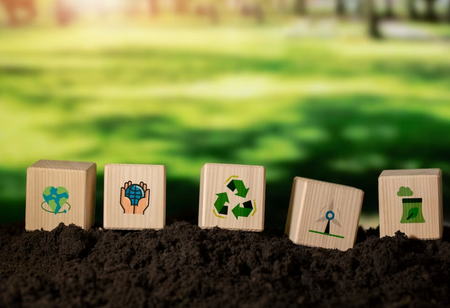
2023 was a year in which greenhouse gas emissions remained persistently high, extreme weather ran rampant, and geopolitical tensions exacerbated the demand for cleaner, safer alternatives. According to experts, if the technology matures and is mastered, it might offer the world a near-limitless source of clean energy and potentially give a significant solution to the global climate crisis.
Here are few sustainability technologies that made headlines in 2023, ranging from revolutionary to gimmicky:
Lighting derived from plants
A team of Massachusetts Institute of Technology (MIT) researchers created a light-emitting plant that can be charged using a light-emitting diode (LED). Their method: specialized nanoparticles placed in plant leaves. The plants shine brightly for several minutes after charging for 10 seconds. They can be recharged multiple times. Capable of producing light ten times brighter than the first generation of glowing plants developed by the MIT research group in 2017, this is a significant step forward in the creation of ambient light using the renewable chemical energy of living flora.
Hemp Powered EV batteries
Hemp, a fast-growing, carbon-capture-and-storage super plant utilized to manufacture textiles, construction materials, food, and automobile parts, could be used to make electric vehicle batteries. Bemp Research Corp, a Texas-based startup, has created a lithium-ion battery material replacement that they expect can be mass-produced by 2026. Bemp is looking for investors to help it develop and commercialize its B4C-hemp - "Boron Carbide made from hemp" - lithium sulfur (LiS) battery technology. Hemp could give a low-carbon alternative to mining for EV power.
Pool-heated Data Center
Since 2019, 65 swimming pools have closed in the United Kingdom, with increased energy costs identified as the reason. Could data centers that radiate heat preserve Britain's swimming pools? Deep Green, a British firm, has created a data center the size of a washing machine that emits enough heat to heat a public swimming pool to 30°C. The concept, which took five years to develop, warms the pool water by pumping hot oil into a heat exchanger. The data center houses the computing systems for the recreation center.
Steak 3D-Printed
Stakeholder Foods in Israel collaborated with Umami Meats in Singapore to 3D-print fish filets. The emerging cell-based meat industry aspires to match the flavor of conventional meat while avoiding the typical costs to animals and the environment. In a TikTok video showcasing the procedure, Israeli Prime Minister Benjamin Netanyahu referred to the 3D-printed beef as the "Future McDonald's."
Reusable Binliners
The TOMbag is a circular garbage bag that will not be disposed of in a landfill when it reaches the end of its useful life. The TOMbag, introduced by Australia-based cleaning services supplier BIC in the City of Sydney's central business district, can save 33,000 single-use plastic bin liners, reducing 1,000kg of waste from entering landfills each year.
Shellmets
The "Shellmet" is a bicycle helmet created from pulverized discarded scallop shells and recycled plastic that mimics the ribbed structure of scallop shells. According to its creators, the Shellmet, developed by Osaka-based Koushi Chemical Industry Co and advertising agency TBWAHakuhodo, provides 30% more strength to the hardhat's structure compared to a standard flat helmet design. Warning about credibility: the idea for this innovation originated in part from an advertising agency, which may not have the best credentials when it comes to climate innovation.
Solar Agriculture
Agrivoltaic farming grows crops in the shadowed area beneath solar panels. This improves land-use efficiency by allowing solar farms and agriculture to coexist rather than fight for space. Because they are insulated from heat stress and water loss, the correct crops thrive in shady areas.
Ammonia Trucking
Changing from diesel to ammonia: Amogy's ammonia-powered, zero-emission lorry may be a potential sustainable option for the heavy-duty trucking industry, which accounts for 23% of transportation's environmental footprint. The technique allows for the conversion of ammonia to hydrogen on-board, which is then fed directly into a fuel cell to power the vehicle.
Facekinis
Facekinis, albeit not a new invention, became popular in China in 2023 due to record-breaking temperatures. This summer, as temperatures reached beyond 35°C, people wore full-face masks with holes for their eyes and nose, as well as hats with built-in fans.
Glass that can be Squeezed
Cloud Foundry, a US-based invention firm, created glass, aluminum, and other stiff material bottles that function similarly to plastic bottles, but with one difference: they can be squeezed. The concept intends to reduce the usage of plastic in the bottling sector.

